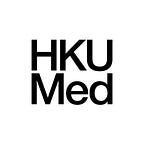‘On a Growth Trajectory’— Prof Vivian Lin on the Faculty’s Recruitment Drive
Rising demand for healthcare workers in Hong Kong has sparked a major recruitment drive by the University of Hong Kong’s Faculty of Medicine (HKUMed) as it seeks 140 teachers and researchers at all levels ahead of its 140th birthday in 2027.
“Our intent is that we grab good people and we grow,” said Professor Vivian Lin, Executive Associate Dean, who served as Director of Health Systems in the World Health Organization’s Western Pacific Regional Office before joining HKUMed in 2019.
The “140 for 140" recruitment push comes as the Hong Kong government seeks to increase the training capacity for healthcare professionals to meet the needs of an ageing population. The recruitment drive will bolster teaching staff across all the professions and areas of clinical medicine to train Hong Kong’s future healthcare workers .
“The faculty is on a growth trajectory. This is partly because the government needs to have more doctors and nurses, so has asked the universities to train more,” Professor Lin said. “To do that, we need additional teachers, and of course, as a research-intensive university, teachers do research.”
Hong Kong is forecast to have a shortfall of almost 2,000 doctors by 2040. To address this shortage, the government has increased the number of healthcare-related University Grants Committee-funded first-year-first-degree places. This increase means HKU is undertaking an ambitious expansion plan to house these students, with the number of first-year-first-degree medical students set to climb to 295 in 2022, up from 153 in 2002.
With an expected loss of 100 teaching and research staff to retirement before 2027, Prof Lin said 240 new people are in fact needed by this milestone.
The recruitment drive will focus on researchers from five key areas: cancer and therapeutics; stem cell and regenerative medicine; emerging infectious diseases, infection and immunity; big data analytics and bioinformatics; and global health.
These fields have been selected to build on the Faculty’s existing strengths and to lay the foundations for areas with huge growth potential.
“When you think about emerging infectious diseases, Hong Kong and the Pearl River Delta region has long been where many new infectious diseases have originated,” she said, pointing to bird flu and Severe Acute Respiratory Syndrome (SARS). “We are the world’s number one centre for coronavirus research, coming out of the SARS days.”
The Faculty is also expanding in the area of big data analytics and artificial intelligence (AI) with a new bioinformatics undergraduate degree set to launch in the 2022/23 academic year.
To fill these roles, HKUMed is looking for people who are collaborative and enjoy working across disciplines, Prof Lin said, explaining that research is increasingly conducted in an interdisciplinary way.
She emphasised that the Faculty has long had a diverse international staff profile made up of people both from overseas and those from Hong Kong who have returned with experience from other world class institutions.
“Because people are high achievers and have been in different places, there’s a real sense that the world is your oyster,” she said.
In terms of support offered to new staff, the Faculty offers competitive startup packages, mentoring, assistance in applying for government grants and excellent facilities, Prof Lin said. Many of the Faculty’s 18 schools and departments also offer protection of time to allow new recruits to kickstart their research.
For life beyond the Sassoon Road campus, Prof Lin said those who are unfamiliar with Hong Kong will be surprised by the easy access to nature and hiking as well as the cultural and culinary offerings to suit every taste.
Prof Lin sought to reassure potential applicants over free speech and academic freedom in Hong Kong following the introduction of the national security law in 2020.
“I grant that there are certain areas of academia where people may be a bit more concerned,” she said. “But I don’t see any evidence in what we do where you would get into trouble unless you were looking to get into trouble.”
